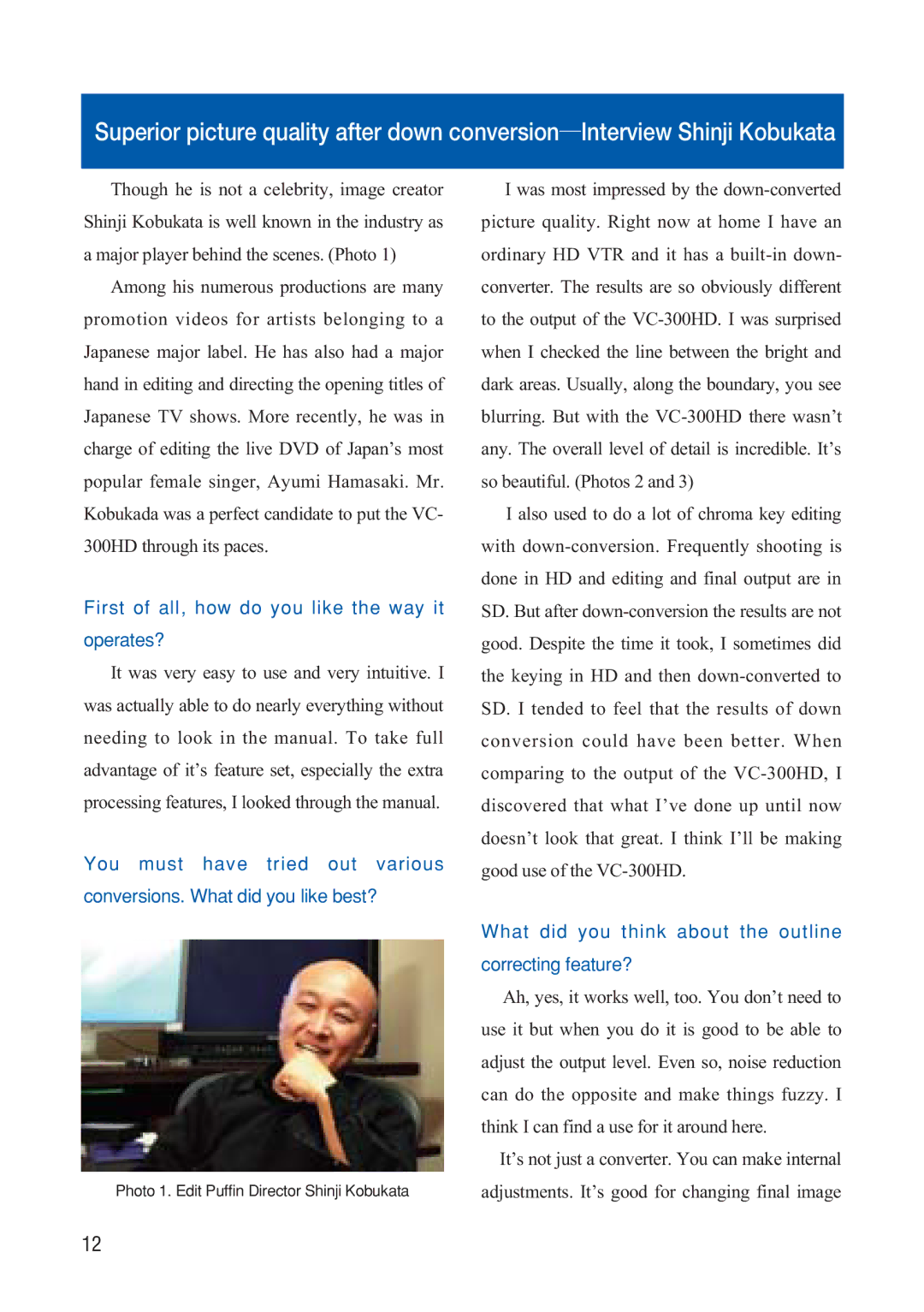
Superior picture quality after down conversion―Interview Shinji Kobukata
Though he is not a celebrity, image creator Shinji Kobukata is well known in the industry as a major player behind the scenes. (Photo 1)
Among his numerous productions are many promotion videos for artists belonging to a Japanese major label. He has also had a major hand in editing and directing the opening titles of Japanese TV shows. More recently, he was in charge of editing the live DVD of Japan’s most popular female singer, Ayumi Hamasaki. Mr. Kobukada was a perfect candidate to put the VC- 300HD through its paces.
First of all, how do you like the way it
operates?
It was very easy to use and very intuitive. I was actually able to do nearly everything without needing to look in the manual. To take full advantage of it’s feature set, especially the extra processing features, I looked through the manual.
You must have tried out various
conversions. What did you like best?
Photo 1. Edit Puffin Director Shinji Kobukata
I was most impressed by the
I also used to do a lot of chroma key editing with
What did you think about the outline
correcting feature?
Ah, yes, it works well, too. You don’t need to use it but when you do it is good to be able to adjust the output level. Even so, noise reduction can do the opposite and make things fuzzy. I think I can find a use for it around here.
It’s not just a converter. You can make internal adjustments. It’s good for changing final image
12
